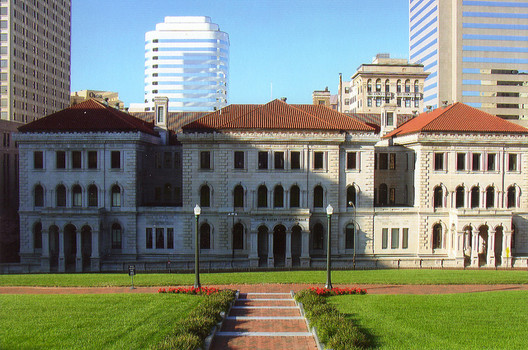Monday’s flawed decision by the 4th Circuit Court of Appeals represents another blow in a long line of attacks on marriage. In overturning Virginia’s 2006 constitutional amendment defining marriage as between one man and one woman, the 4th Circuit follows other federal courts in expressing blatant disregard for the will of millions of voters and the truth about marriage.
Citing Supreme Court precedents striking down prohibitions on marriage by opposite-sex couples of different races (Loving v. Virginia, 1967) or who are incarcerated (Turner v. Safley, 1987), in a 2-1 decision, the 4th Circuit concluded that “the fundamental right to marry encompasses the right to same-sex marriage,” declining the “the Proponents’ invitation to characterize the right at issue in this case as the (new) right to same-sex marriage rather than simply the right to marry.”
As Bishop Francis DiLorenzo of Richmond and Bishop Paul Loverde of Arlington said in a joint statement on Monday, the decision of the 4th Circuit “reflects a fundamental misunderstanding of the intrinsic nature of marriage and is an injustice to Virginia voters…. [B]y rejecting the state amendment which affirms marriage as the unique institution between one man and one woman, the Court seeks to redefine an age-old institution, rooted in natural law, and extend a right that does not – and cannot – exist between people of the same sex.”
While many hail the decision as a sign of “progress,” Pope Francis reminds us that same-sex “marriage” is in fact an “anthropological regression.” In a powerful dissent, 4th Circuit Judge Paul Niemeyer wrote that the court’s decision “fails to take into account that the ‘marriage’ that has long been recognized by the Supreme Court as a fundamental right is distinct from the newly proposed relationship of a ‘same-sex marriage.’” The majority opinion declines to say whether there exist any qualifying characteristics needed to enter into a marriage other than romantic and emotional attachment, leading Judge Niemeyer to write that “…in holding that same-sex marriage is encompassed by the traditional right to marry, the majority avoids the necessary constitutional analysis, concluding simply and broadly that the fundamental ‘right to marry’—by everyone and to anyone—may not be infringed. And it does not anticipate or address the problems that this approach causes, failing to explain, for example, why this broad right to marry, as the majority defines it, does not also encompass the ‘right’ of a father to marry his daughter or the ‘right’ of any person to marry multiple partners.” Judge Niemeyer goes on to assert that the majority is “simply defin[ing] terms as a means to attain an end.”
Marriage does have a definition, which, as the Bishops remind us in their 2006 pastoral letter on marriage, is given by God: “Though regulated by civil laws and church laws, marriage did not originate from either church or state, but from God. The only authentic understanding of marriage, therefore, is the one that God inscribed in our human nature. No religion, government, or individual has the right or the legitimate authority to alter the basic meaning and structure of marriage that has existed ever since the first man and woman were created.”
Despite this disappointing ruling by the 4th Circuit, the true definition of marriage is eternal. The truth cannot be overruled. Rather, as Bishops DiLorenzo and Loverde assert, “We will continue to affirm the truth about marriage, the lifelong union of one man and one woman, as well as the importance of marriage to the common good. As pastors, teachers, and faith leaders, we can do nothing less. We will continue to fight this unjust ruling.”
Let us join the Bishops in continuing to advocate and affirm the truth about marriage.
